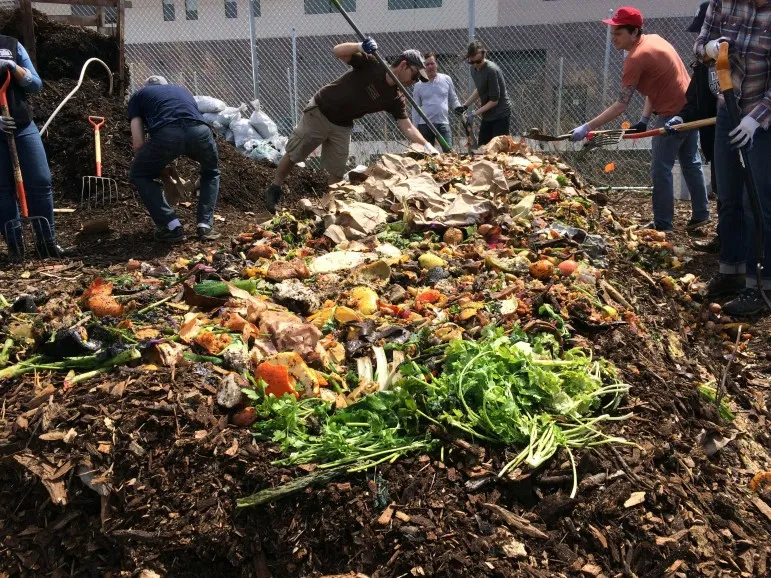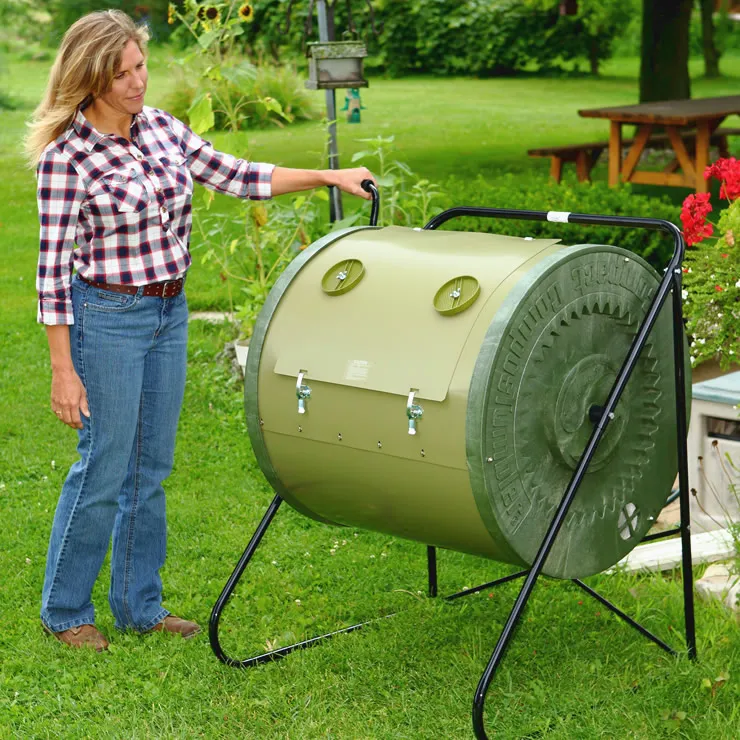
Compost is the final product of the biodegradation of vegetable or animal waste by soil organisms, under controlled conditions of air, temperature and humidity.
What are the benefits of composting?
• Transforms the vegetable and animal waste into a useful product.
• Reduces the presence of pathogens.
• Reduce pollution.
• Increases the capacity of the soil to absorb water.
• Prevents soil compaction.
• Reduce the use of fertilizers.
• It can be sold as a product.
How to prepare compost?
Is actually really easy!
Your compost should have four elements:
Browns: It is the mixture of dried leaves, branches, sawdust, pieces of wood and crushed newspaper.
Green: Organic remains, grass, vegetable waste.
Land: This will give body to the previous mixtures.
Water: Having the right amount of water, greens and browns is the basics of composting.
You will also need a container, I bought mine from a friend (similar to the one in the picture below), but you can make your own with a normal garbage barrel.

Start composting
Step 1. The lower layer should be of branches and pieces of wood, this will help the ventilation.
Step 2. Alternate the layers of garden waste with the remains of food, placing a layer of soil between them. Keep the mixture moist and stir it every two weeks.
Step 3. Cover the compost with a lid to keep it moist and hot.
In a tropical climate it can take three months to be ready, in colder places it can take up to 6 months. To know if it is ready, take a fist and observe its color. It must be dark and you will not observe anything of the deposited, except the pieces of branches.

